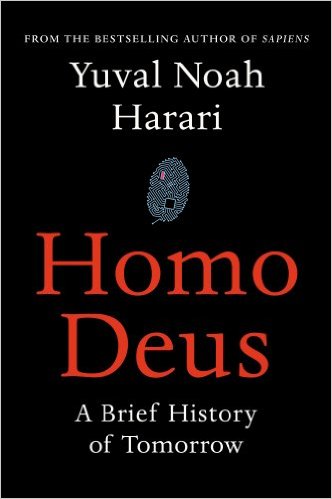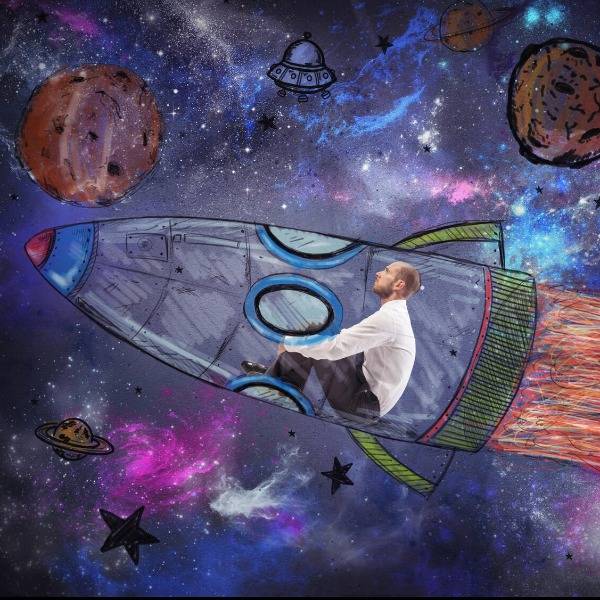
This article is a preview from the Spring 2017 edition of New Humanist. You can find out more and subscribe here.
Homo Deus: A Brief History of Tomorrow (Harvill Secker) By Yuval Noah Harari
Sometimes, I like to ask my conservative religious friends, “Doesn’t it suck being against progress?” It’s supposed to be religion that’s threatened by scientific advances, while humanism is strengthened by them. But might scientific progress one day undermine the central tenets of humanism? That’s the argument put forward by history professor Yuval Noah Harari in his new book, Homo Deus.
Harari picks up where his 2014 international bestseller, Sapiens, left off. Sapiens took readers on a breathtaking tour of 150,000 years of the human species. It tackled developments from language and agriculture to the scientific revolution and, finally, to the biotech advances of the 21st century. The book’s success was in part due to the sheer scale of Harari’s subject, as well as his fondness for controversial conclusions. He argued that agriculture, for example, was a terrible mistake and that hunter-gatherers were happier than modern humans. Sapiens ended by pointing to a future where science has led humans to near-immortality. Homo Deus takes this future as its starting point.
In Homo Deus, Harari argues that humankind in the 21st century is about to reach its peak. It has defeated its three existential threats: famine, total war and mass pandemic. As it looks toward the coming centuries, the species will be focused on two outstanding challenges: maximising human happiness and achieving immortality. To make his case for how this will impact on human values, Harari goes back in time to the agricultural revolution. He develops a theory of history to explain how the stories that humans use to explain the world evolve.
To Harari, the ability to tell stories, often through religions, is key to understanding human development. These stories are heavily influenced by the development of technology. Harari argues that the domestication of animals, for example, led to monotheisms: humanity now saw itself as a superior species and began to reject polytheistic beliefs in the sanctity of other animals.
This connection between human stories and science is key to the book’s argument. By understanding how the development of science influenced religion and the stories that humans tell each other, Harari believes we can predict how incoming immortality, or at least greatly extended lifespans, will affect the dominant stories and religions of the 21st century. While the book’s blurb and title focus on humanity reaching immortality, Harari actually considers how that might happen only briefly. Instead, he focuses on the consequences this will have for what he calls humanity’s dominant religion: humanism. Harari argues that, in the search for immortality, humanity will kill humanism.
Harari believes that science trumped religion because it proved many of its tenets, even its ethics, to be factually wrong. Darwinism, for example, makes the concept of a soul very hard to hold. But does humanism also rely on factual statements that science might undermine? Harari focuses on the “liberal humanist” view that human beings, as the sole moral authority, know their own needs and desires best, and so should be given the freedom to decide their own path in life. This leads most humanists to believe in democracy, for example, or “to thine own self be true”. Harari sees this ethical stance as resting on two scientifically testable statements: firstly, that humans have free will, and secondly that there is a true inner “self” for us to discover and follow.
For humanists, free will is absolute, our sole driver. But advances in both neuroscience and computers are undermining this view. Harari cites experiments that seem to show a decision is made before the person is actually conscious of that decision, and fascinating experiments with people who have had their left- and right-brain hemisphere disconnected, who will then justify the same decision with different logic, depending on which hemisphere is being stimulated. Advances in computers that make machines intelligent, if not conscious, leave more scientists convinced that a similar computer-like process must govern the mind. Harari paints a picture of the brain making decisions automatically, which the conscious mind then justifies and takes credit for.
Harari also questions the idea that there is a true inner “self” for each of us to know and follow. He firstly argues that computers will soon know us better than we do, citing experiments where Facebook’s algorithms were more accurate at predicting a person’s interests than their own spouses were. Might we see a future where, rather than follow our fickle conscience, an algorithm could examine data on our age, income, health, interests, values, location and other sources, and provide a clear recommendation for which political party suits us best? Might we eventually trust such an algorithm to vote on our behalf?
Increasingly, it may be possible to change our inner selves. As drugs improve, Harari sees a world where you could choose personalities off a shelf, and craft the true “selves” you want, like today’s lazy students taking pills to make them studious. Why should Romeo follow his true self and be with Juliet, if he could spare himself that conflict and take a pill that will make him love someone else?
There is plenty to disagree with in Harari’s analysis. Take his claim that “humanism” is humanity’s dominant religion, for example. Harari uses a loose definition of humanism that includes any religious belief system that places value on free will and “finding oneself”: a definition that might feel quite alien to many readers of this magazine. Harari also displays great faith in humanity’s ability to follow philosophical argument. But while it might rationally follow that the challenges posed by new technologies should undermine humanism, this is not evidence that it actually will. The spectacle of creationists gladly making use of advanced medical science when they need it provides evidence enough for this human irrationality. The dizzying breadth of Homo Deus also results in sweeping statements made with little justification, such as Harari’s confidence that famine, war and mass pandemic are really bound to be a thing of the past, or that science has already “killed religion”.
As science and technology undermine concepts of free will and a true inner “self”, Harari foresees a threat to the prospect of a world in which we value the uniqueness of each person and trust them to make their own lives. This is not something he necessarily welcomes; rather, his book serves as a warning about where we might be headed. The reader is taken on a mind-expanding journey through the history of humanity and into its future with fascinating stories, clear logic and genuine humour. In a world where humanist priorities can be highly focused, such as opposing faith schools or arguing for evidence-based policy, Homo Deus provides a refreshing step back to focus on the bigger picture. While we might feel on the side of science and progress right now, Homo Deus invites us to question whether it will remain that way.

